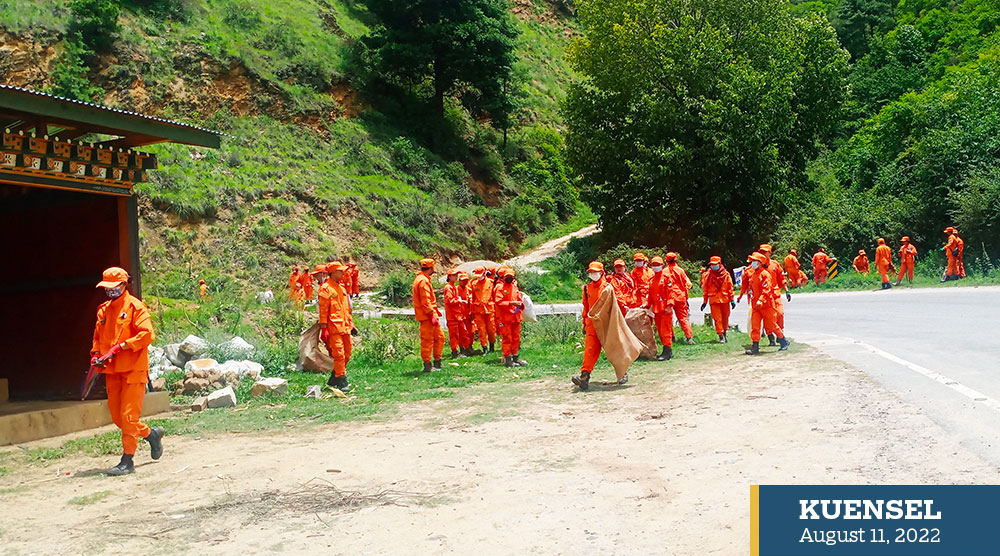Thinley Namgay
Close to 1,000 people, including 487 de-suups gathered waste in a mass cleaning campaign in Thimphu yesterday.
Waste will be collected from as far as Dochula, Chuzom, and Tango.
Organised by the National Environment Commission (NEC), other relevant agencies and civil society organisations are part of the event.
Volunteers collected waste and educated residents to take care of their waste.
Unlike other cleaning campaigns, this campaign will continue beyond next month. Officials said that there would be proper monitoring after the place is cleaned and defaulters will be fined.
Despite many cleaning campaigns in the past, Bhutan grappled with increasing waste management problems due to the carelessness of residents and the lack of proper enforcement of laws by the authorities.
NEC’s Secretary Sonam P Wangdi said that Bhutan produced 172 metric tons of waste a day and 45 percent of it is kitchen waste.
He said that the waste issue was a concern and the programme would ensure that the community is involved and sensitised. “Behavioural change is necessary. That can be only achieved when people start accepting the responsibility for their waste.”
He said that NEC is working on creating a circular economy where waste would be recycled. “NEC is trying to turn kitchen waste into biogas. We’re making poles using plastic.”
Chief of waste management division at NEC, Thinley Dorji, said that the public could download a ‘ZW Bhutan’ app from the play store and get information regarding penalties and other information.
He said that one of the factors for ineffective enforcement of waste-related laws could be due to a lack of alternatives.
A shopkeeper at Khasadrapchu, Mon Maya Monger said that a waste collector vehicle hasn’t come to their area for almost a year now and managing waste has become a big challenge. “We burn some waste. Bottles are taken to Gidakom dumping site.”
Another shopkeeper said she used to hire a bolero pickup truck to carry waste which charged Nu 1,500 a trip.
Meanwhile, some residents said that it would be good to hand over a certain area to the community with strict instructions to dispose the waste. They said cleaning campaigns were not sustainable.
Plastic use was first banned on April 20, 1999. The trade ministry had then banned the use and sale of plastic carry bags, doma wrappers and homemade ice cream pouches.
After decades of notifications and diligent efforts by the relevant agencies, the implementation of the ban still remains a challenge. Towards the end of 2018, NEC consulted with relevant agencies and decided to reinforce the ban, which came into effect on April 1, 2019.


